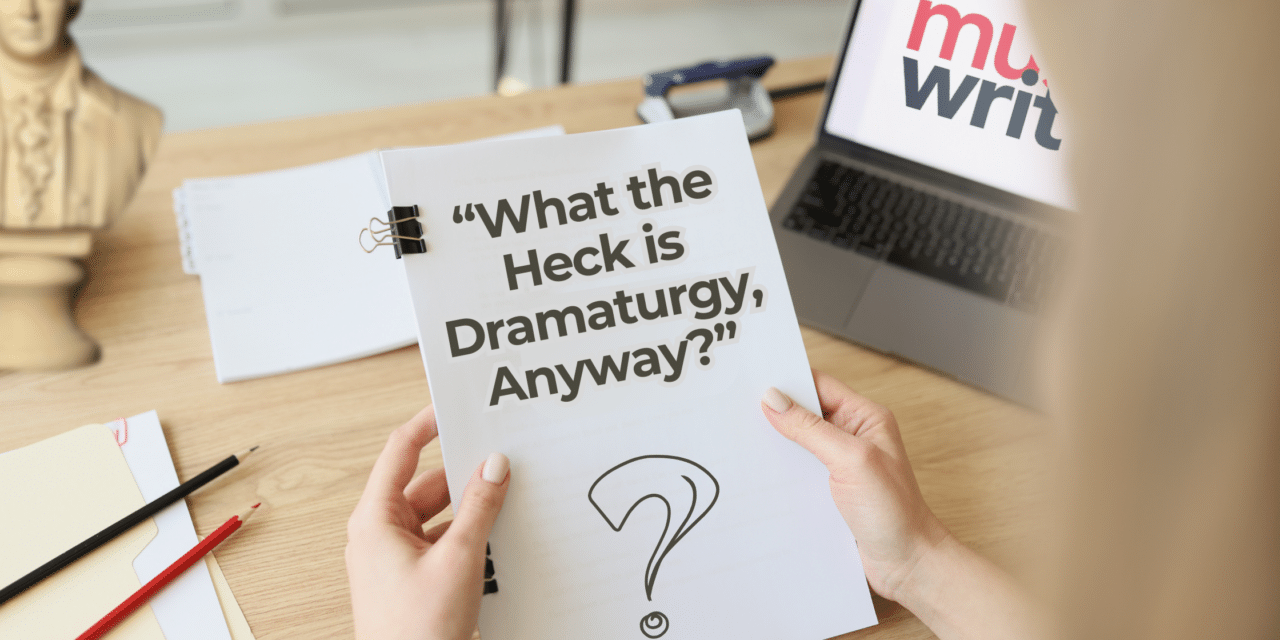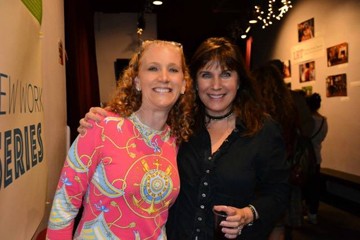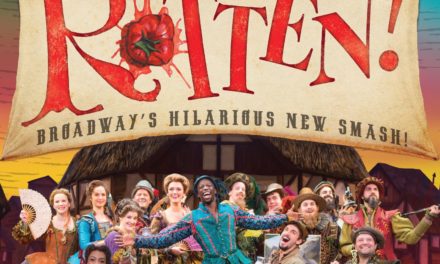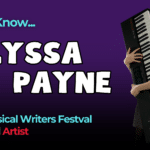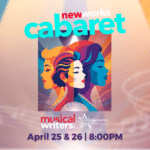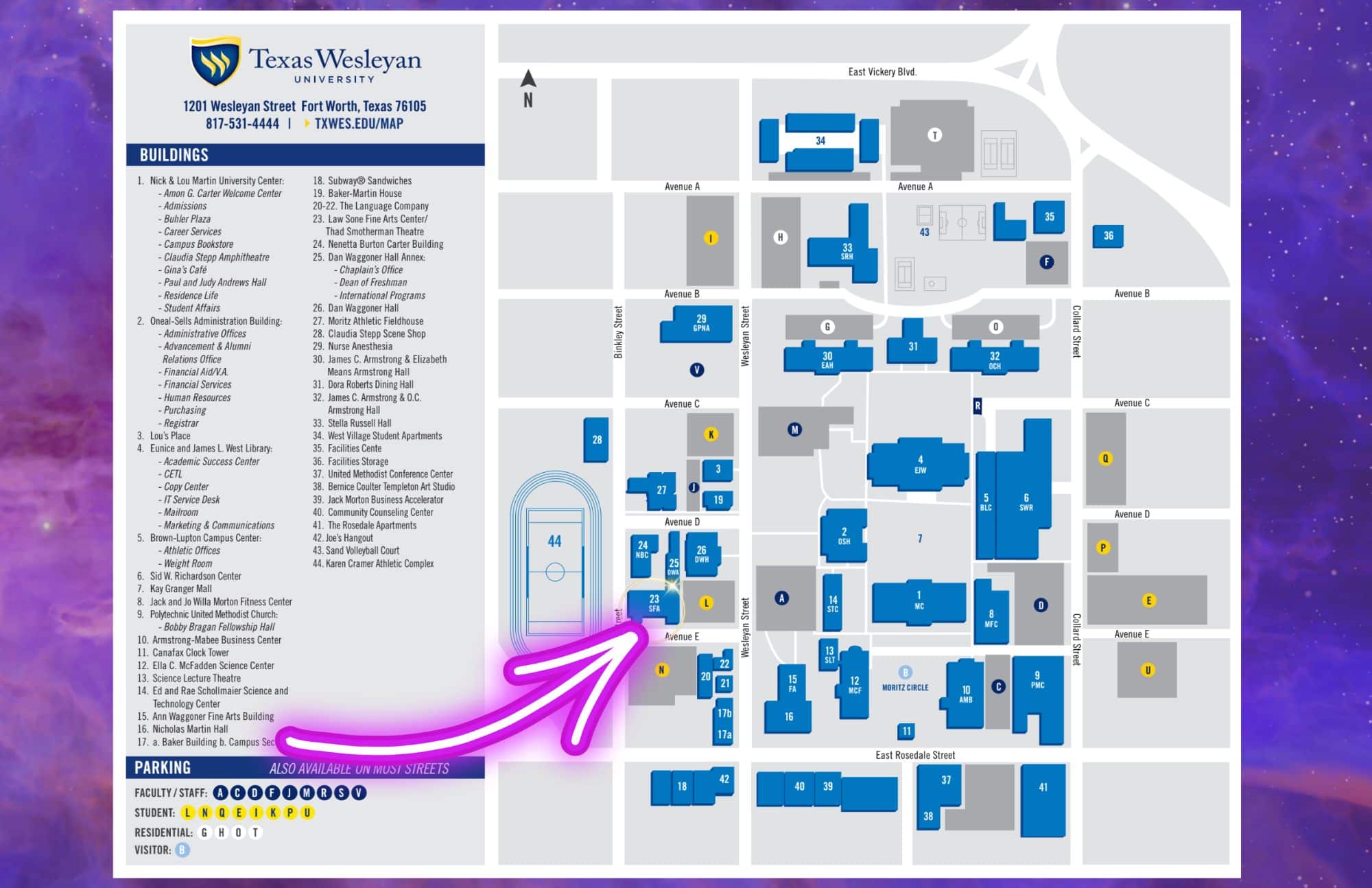Dramaturgy. Hard G? Soft G? What is up with that suffix? Who came up with this? What even is it?
Dramaturgy’s “Operatic” Origin Story
Dramaturgy (soft g) was coined by an old German who at one time worked with an obscure Viennese composer called Mozart. G.E. Lessing was his name, and it was he who instructed Mozart on the importance of character development in narrative. It was through Lessing’s Hamburg Dramaturgy that we have a name for the study of the art of narrative.
What is Dramaturgy?
Dramaturgy is fickle, because its practitioners cannot agree on a definition of the practice. We dramaturgs agree on what it is, artistically and philosophically, but the practice itself changes depending on the production. Oftentimes we are relegated to researchers, which while useful and a necessary part of the practice, is not what dramaturgy is. We often hold the tandem title of literary manager, which is also useful but also not what dramaturgy is. So what the heck is dramaturgy anyway?
Dramaturgy is the art of understanding how all the elements of narrative fit together in dramatic writing and presentation.
Dramaturgy is present at every stage of the theater-making process from the first words on the page, to the bodies in space, to the lighting and sound, to the notes in the program. What dramaturgy is concerned with, first and foremost, is the effectiveness of the art being made. This way of thinking about drama is far from new, because while a 19th century German may have coined the term, the practice is ancient. Aristotle’s Poetics is the earliest form of Western dramaturgy that we have–and it is itself a dramaturgical treatise, with Aristotle trying to make sense of the structure of a tragedy using a work he was familiar with: Sophocles’ Oedipus Rex. We still interact with many concepts from this ancient text, like catharsis.
On the other side of the world, we have the Natya Shastra, ancient Hindu texts that lay out the rules not just for dramatic structure but also guides for the shapes a body can make to serve the storytelling, the integration of music and storytelling, and the elevation of an actor’s consciousness during performance. This text outlines the aesthetic concept of rasa, a useful term to describe certain intangibilities of experiencing art. It is a Sanskrit word that means “essence” or, my favorite, “juice”. We have been concerned with the juice of art for thousands of years. Both of these texts and traditions are equally dramaturgical, even if the end results look very different.
The Importance of Dramaturgy
Okay, what do ancient texts have to do with the musical you’re writing now? These texts show there is no one way, certainly no wrong way, to make theater. What these texts, and by extension dramaturgs, provide is the ten thousand foot view of your art, a way to pull back and see the thing in its entirety. They provide the bones by which to hold up your piece and say to yourself, “is this what I’m trying to accomplish?”
When creating a new musical, there are many elements that you, as a writer, are concerned with: character relationships, tone, which songs go where and when, what key is this song in, should this character have a specific style of music attached to them, am I using leitmotifs correctly, the list is simply endless. The dramaturgs’ job, ideally, is to be a navigator for the piece. You have a soft and tender moment between two characters, leading into an up-tempo isn’t going to feel quite right, and you need a dramaturg you trust to help you who already has the knowledge intrinsically to guide your piece.
Musical Theater Dramaturgies
Musical theater has its own dramaturgies. There are structures unique to this medium–and yes, it is a medium, not a genre, as some have said. Ample articles are available on Musical Writers deconstructing the “I Want” song, a unique dramaturgical device to musical theater. You can find roadmaps to story structures, specific types of dramaturgical tools useful in the early stages of writing. There are even articles on the importance of doing research throughout your writing process, something dramaturgs are intimately familiar with. If you want more examples of tasks that often fall into the dramaturgs’ jurisdiction, check out “What is Dramaturgy” from the Literary Managers and Dramaturgs of the Americas.
One of the most successful musicals of the last ten years, Hadestown, has their dramaturg credited in every program. I am hopeful that is the beginning of a trend and not a one-off. As a fun dramaturgical exercise, go listen to the concept album and then listen to the original cast album–see where the story expanded and sharpened, what was added to get us to care about these characters. Anaïs Mitchell also annotated her lyrical development of the musical in Working On A Song, which she dedicates to “Team Dramaturgy.” You don’t need to be adapting a great epic from the ancient world to have a dramaturg, though. In fact, sometimes the smaller stories need the most support–because they are closest to how people act, and that is incredibly difficult not just to write, but to do.
Final Thoughts
To put into metaphor: think of your theatrical production as a forest. Each of your creative team members has their tree to take care of, and that is important. But in seeing the forest for the trees, someone needs to remain the forest watcher. The dramaturg wants to watch and care for the forest you cultivate. Dramaturgy is the ten thousand foot view of your forest.
You are concerned with so many things as a writer, it is imperative you have a dramaturg that you trust with your work to tell you what works and what doesn’t. Because while it is true there is no right or wrong way, there is a sliding scale of effectiveness. To have your musical be the most effective version of itself, you need all hands on deck, and that includes your dramaturg.
Want to learn more about dramaturgy, or find a dramaturg to help with your current project?
Check out these MusicalWriters resources and services:
- Article: What is a Dramaturg: An Interview with Ken Cerniglia
- Article: Sammi Cannold on the Writer-Director Relationship
- Article: Member Spotlight – Kenady Sean
- Service: Full Script Coverage and Consultation
- Service: Private Coaching
About the Author
Emma Bilderback is a graduate of the Universiteit van Amsterdam with a major in International Dramaturgy and is currently based in New Brunswick, NJ. Her academic journey in the Netherlands and research in South Africa have enriched her expertise in postcolonial narratives and their impact on the arts. Emma holds a Bachelor’s degree from Marymount Manhattan College, where she developed her skills in musical theatre and American Realism, and furthered her knowledge in Greek drama, feminist, and queer theatre during her graduate studies. With a lifelong passion for theatre, starting from her early training at the Los Angeles County High School for the Arts, Emma is dedicated to making theatre accessible and ensuring both audiences and performers engage confidently with the narrative.

